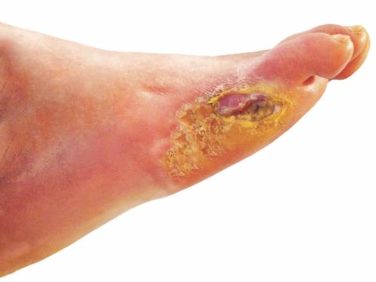FROM THE LANCET
A long-acting injectable formulation combining two antiretroviral drugs – cabotegravir and rilpivirine – is as effective as a daily oral regimen of cabotegravir plus abacavir and lamivudine, according to interim results from the LATTE-2 trial.
Writing in the July 24 online edition of The Lancet, researchers have reported the 96-week results of the ongoing open-label phase 2b trial involving 286 treatment-naive adults infected with HIV-1.
After a 20-week induction on daily oral cabotegravir plus abacavir–lamivudine, participants were randomized either to intramuscular long-acting cabotegravir plus rilpivirine at 4-week or 8-week intervals, or to continue with the oral therapy.
At 32 weeks, 95% of patients in 8-week group, 94% of patients in the 4-week group, and 91% of patients in the oral therapy group had maintained viral suppression, defined as plasma HIV-1 RNA less than 50 copies per mL (Lancet. 2017 Jul 24. doi: 10.1016/S0140-6736[17]31917-7 ).
By week 96, viral suppression was seen in 94% of patients in the 8-week group, 87% of patients in the 4-week group and 84% of patients on oral treatment.
A nonresponse at 96 weeks was seen in five patients in the 8-week group and one patient in the oral therapy group. There were also two patients in the 8-week group and one in the oral treatment group who met the criteria for virologic failure.
“Viral genotyping analysis for the patient in the oral treatment group had no treatment-emergent resistance mutations in the genes encoding viral reverse transcriptase, protease, or integrase,” wrote David A. Margolis, MD, from ViiV Healthcare, and his coauthors.
Injection-site pain was the most common adverse event in the injectable groups, experienced by 96%-97% of patients, but most reactions were mild or moderate and lasted a median of 3 days.
There was only one drug-related serious adverse event, which was a migraine that occurred in one patient during the oral induction period. None of the other serious adverse events were deemed to be drug-related.
Patients reported high levels of treatment satisfaction across all study groups, and more than 99% of patients in the injectable treatment arms said they would be highly satisfied to continue with the regimen, compared with 78% of patients in the oral treatment arm.
“The acceptability and tolerability of injectable dosing options will be an important component of long-term treatment success, and a high degree of treatment satisfaction will avail this option for patients burdened by life-long daily oral medication compliance,” the authors wrote.
However they did note that the study population was mostly white men with a CD4+ cell count at entry of at least 200 cells per mm.
“Therefore, the efficacy, safety, and pharmacokinetic outcomes of long-acting cabotegravir plus rilpivirine in different subpopulations infected with HIV-1 needs further evaluation,” the investigators concluded.
The study was funded by ViiV Healthcare and Janssen R&D. Nine authors are employees of ViiV Healthcare and shareholders in GlaxoSmithKline. Nine authors declared funding, grants, and honoraria from a range of pharmaceutical companies including ViiV Healthcare. Two authors are employees and shareholders of GlaxoSmithKline. Two authors are employees of Janssen, and stockholders of Johnson & Johnson, AstraZeneca, or GlaxoSmithKline. One author had no conflicts to disclose.




